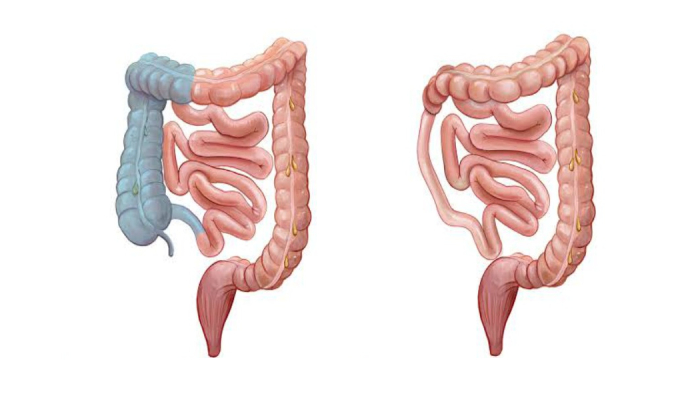Overview
A hemicolectomy is a type of surgery done to remove part of your large intestine called your colon. Your colon can be partially removed without affecting the way it works in your digestive system. Once the affected part is removed, the remaining ends are joined together with almost no impact on your digestion.
There are two main kinds of hemicolectomies, left and right. In a right hemicolectomy, the ascending colon (the part of your colon that’s attached to the end of your small intestine) is removed. Then the small intestine is attached to the transverse colon (the part of your colon that goes across your body). In a left hemicolectomy, the descending colon is removed. This is the part of your colon that’s attached to your rectum. After it’s removed, the surgeon attaches the transverse colon directly to your rectum. consult Dr. Ujwal Zambare, a skilled Gastrointestinal & Laparoscopic Surgeon in Wakad, Pune. Get personalized treatment and advanced surgical care for hemicolectomy.

Why is Hemicolectomy Performed?
The usual reasons for hemicolectomy are bowel cancer, polyps, diverticulitis, inflammatory bowel disease or an abdominal injury.
How to Prepare for Hemicolectomy
If you are going to have hemicolectomy you might need to take ‘bowel prep’ medicine. This is a type of laxative that empties your bowel for the procedure. You may need to be on a ‘clear fluids’ only diet prior to the procedure. If you’re asked to do this, plan for a quiet time the day or 2 before surgery. You will be asked to fast (not have anything to eat or drink) before surgery.
What Happens During Hemicolectomy?
After the general anaesthetic is given, the surgeon removes the unhealthy section of the bowel. This is usually done through a single cut in the abdomen, but sometimes this operation may be done laparascopically (‘keyhole’ surgery), through a few smaller cuts. After removing the unhealthy bowel, the surgeon joins the ends of the remaining bowel together. Sometimes the ends of the bowel cannot be joined, so one end is connected to the skin of the abdomen. This creates an opening known as a stoma. A bag, known as a colostomy bag, is attached around the stoma to store bowel contents as they pass out of the body. You empty the bag regularly. For many people, the stoma is reversed once the bowel heals enough to be rejoined in a later operation.
What to Expect After Hemicolectomy?
A hemicolectomy is major surgery. It will take some time to get over it. When you wake, you’ll have a drip in your arm and you’ll feel drowsy. You’ll be given medicine to relieve pain, and perhaps antibiotics to prevent infection. You’ll probably feel tired and weak after a hemicolectomy. It can take a few weeks to feel better. Your doctor can advise you how much time you may need off work. Some people experience constipation or diarrhoea after surgery. Let your doctor know if you are having problems. You may need to stay in hospital for about 10 days. If you had keyhole surgery, your stay might be shorter.
Treatment
- cancer of your colon or bowels
- trauma or injury to your abdominal area
- inflammatory bowel disease (IBD), such as ulcerative colitis or Crohn’s disease
- polyps, or tissue growths in your colon that can become cancerous
- diverticulitis, which happens when diverticula (small pouches) in your colon get infected or inflamed
Request a Call Back for Hemicolectomy Consultation:
If you or a loved one needs expert care for colon conditions requiring Hemicolectomy, consult Dr. Ujwal Zambare, a skilled Gastrointestinal & Laparoscopic Surgeon in Wakad, Pune. Get personalized treatment and advanced surgical care at True Life Clinic & Wellness Center Wakad.📞 Request a call back now! Fill out your details, and our team will reach out to assist you.
